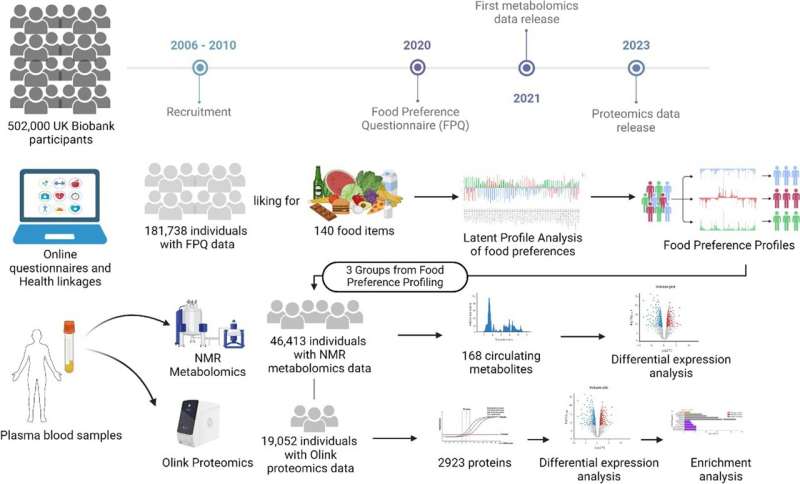A new study from the University of Surrey has uncovered a concerning connection between a preference for sweet foods and an increased risk of depression, diabetes, and stroke. The research utilized data-driven artificial intelligence methods to group people based on their food preferences and analyze the associated health outcomes and biological markers. The findings suggest that being mindful of our sugar intake could have significant benefits for our overall well-being.

The Surprising Link Between Sweet Tooth and Health Risks
The study, published in the Journal of Translational Medicine, examined the food preferences of 180,000 volunteers within the UK Biobank. Using AI, the researchers were able to group the participants into three distinct profiles: those with a sweet tooth, a health-conscious approach, and an omnivorous diet.
The results were quite striking. The sweet tooth group was found to be 31% more likely to suffer from depression, as well as having higher rates of diabetes and vascular heart conditions, compared to the other two groups. Professor Nophar Geifman, the senior author of the study and Professor of Health and Biomedical Informatics at the University of Surrey, explains, “The foods that you like, or dislike seem to directly link to your health. If your favorite foods are cakes, sweets, and sugary drinks, then our study’s results suggest that this may have negative effects on your health.”
The Biological Markers of a Sweet Tooth
The researchers also looked at the differences in standard blood biochemistry tests between the three groups. In the sweet tooth group, they found higher levels of C-reactive protein, which is a marker for inflammation. Their blood results also showed higher levels of glucose and poor lipid profiles, which are strong warning signs for diabetes and heart disease.
Conversely, the health-conscious group, who also had higher dietary fiber intake, had lower risks for heart failure, chronic kidney diseases, and stroke, while the omnivore group had moderate health risks. These findings highlight the significant impact that our food preferences can have on our overall health and well-being.
The Importance of Mindful Eating
According to the British Nutrition Foundation, on average, in the UK, between 9% to 12.5% of an individual’s calories come from free sugar—this is defined as sugar that is added to food or drink. Biscuits, buns, cakes, pastries, and fruit pies are the biggest single contributors for adults, but together, sugary soft drinks and alcoholic drinks contribute the most to free sugar intake.
Professor Geifman emphasizes the importance of being mindful of our sugar consumption, stating, “Processed sugar is a key factor in the diet of many, and these results are yet more evidence that, as a society, we should do all that we can to think before we eat.” While no one wants to dictate what people should eat, the research highlights the need for greater awareness and education around the health implications of a sweet tooth.
